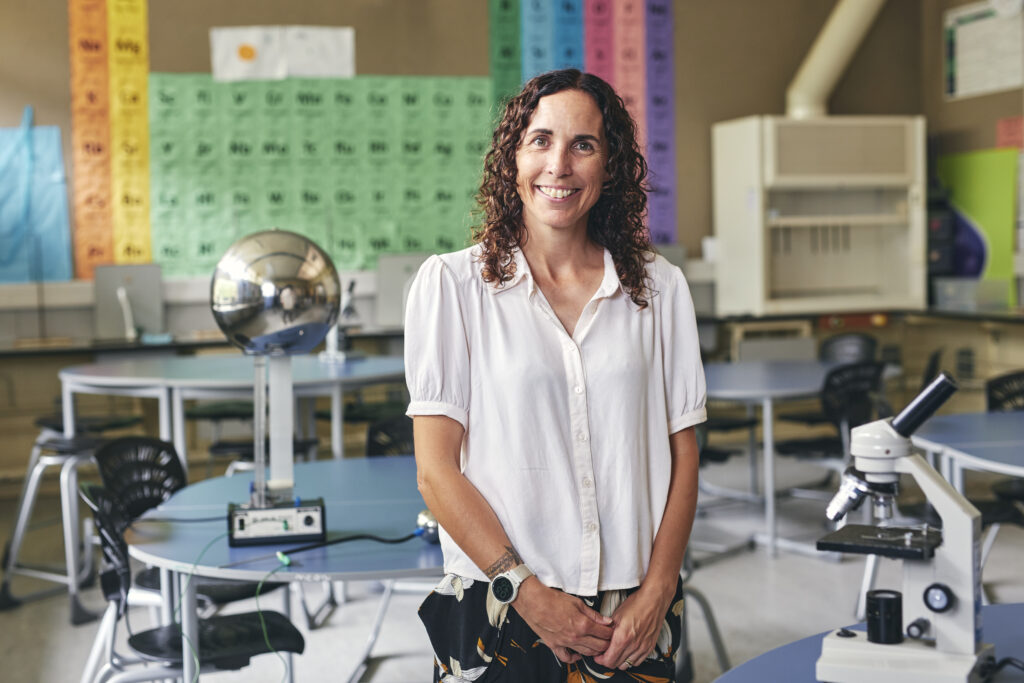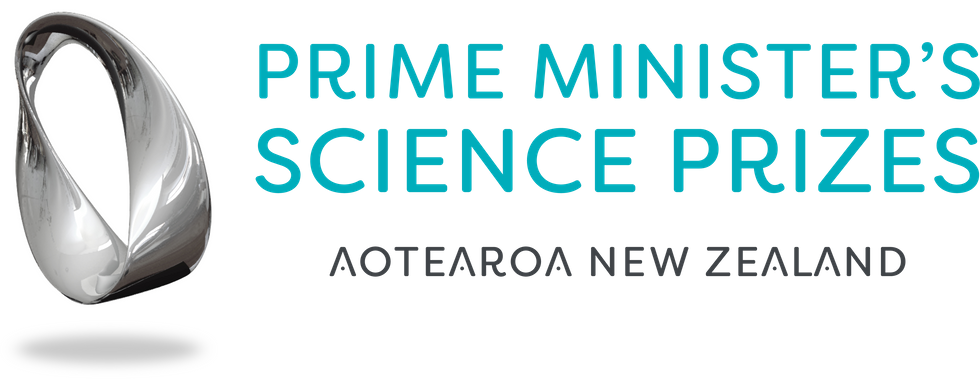2023 WINNER OF TE PUIAKI KAIWHAKAAKO PŪTAIAO THE SCIENCE TEACHER PRIZE
Madeleine Collins, from Green Bay High School, Auckland has been announced as the 2023 winner of the Prime Minister’s Science Teacher Prize.
Madeleine Collins aims to create an engaging and culturally sustaining learning environment in every lesson she teaches. Madeleine believes that science education should be exciting, joyful and provoke curiosity and that children are natural-born scientists, constantly exploring and trying to find answers in the world around them.
Read media release about Madeleine’s prize.
Over 24 years, Madeleine has had many roles as a teacher and educator including teaching children at every level from year 0 to year 13. Specialising in chemistry, she strives to create opportunities for students that enable them to understand how science fits into their worlds. This is the wairua that Madeleine strives to bring to every science lesson and to develop in her students. As a teacher she respects every moment of her students’ time in her classroom ensuring that the learning opportunities are relevant, lifeworthy and purposeful.

Whanaungatanga and manaakitanga are her focus at the beginning of every lesson. Madeleine greets each student at the door as they come into class which allows her to interact with them in a happy, non-instructional way and allows her to gauge their mood and guides the approaches she then uses in the lesson. Initiating the interactions in a respectful and kind manner sets the tone for a safe classroom culture and increases students’ feeling of belonging.
Madeleine admits to still being very much on a learning curve regarding mātauranga Māori, but she tries hard to incorporate this knowledge system as much as possible as it is really important to Madeleine. As Assistant Head of Faculty she develops much of the course work in her science department. Within the Year 9 course, Earth and Space Science is taught in the context of Matariki, focusing on how Māori used science skills like observation and pattern seeking. Similarly, a Year 11 Chemistry unit focuses on sustainable drinking water, including how different types of wai are classified in Te Ao Māori and how mauri can be restored to water.
Madeleine’s favourite pedagogical strategy is called the 5E instructional model: Engage, Explore, Explain, Elaborate, Evaluate.
In her classroom students have the opportunity to learn in a variety of ways – individually, through discussion with peers, shared-learning opportunities, hands-on, written, outside the classroom, and more. Assessment is also done in a variety of ways with the assessment tasks themselves offering students multiple ways to share their understanding.
There is evidence of student engagement, high achieving results, and retention of students in Madeleine’s classes and the wider Science department at Green Bay High School. Most recently, it has been shown in senior course selection where, for the first time this year, science had the highest number of senior courses selected out of all the departments in the school. As Assistant Head of the Faculty of Science at Green Bay High School, Madeleine is proud to work in a highly collaborative team which has led to improved student engagement and success.
Madeleine has contributed to science teaching at both a regional and national level.
Madeleine has been involved with the Sir Paul Callaghan Science Academy since 2014, where she mentors teachers to create hands-on science programmes at their schools. It’s a 4-day course that teachers of Years 0 to 10 can attend, to learn about implementing a school-wide hands-on science programme.
Her expertise in delivering the science curriculum led to her appointment to a team of experts who are advising on the national curriculum for science. Madeleine’s message for her fellow science teachers is to be braver in adopting a hands-on learning approach.
The experts on the selection panel noted Madeleine’s enthusiasm, and her ability to tailor her teaching for each student.


